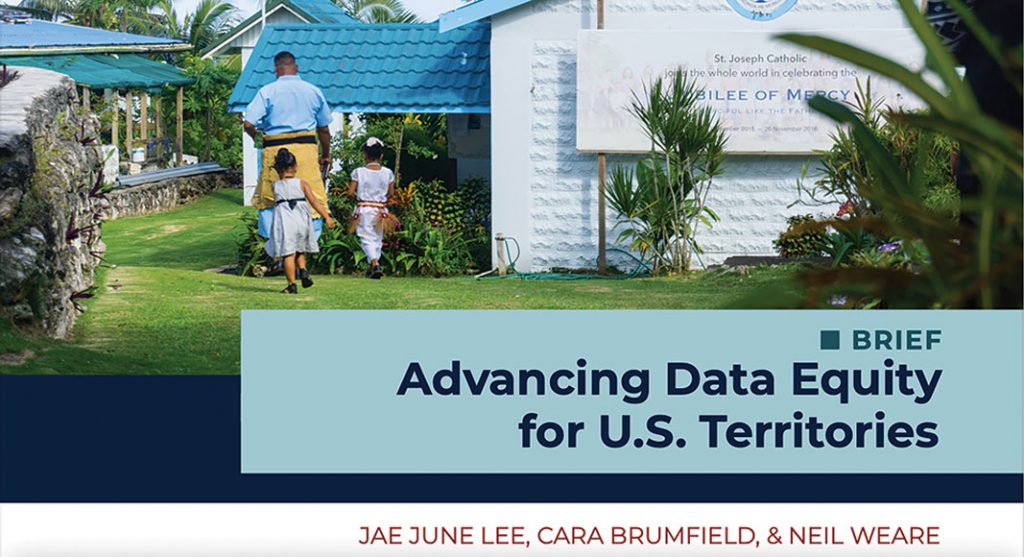Study highlights need for federal data equity in US territories

A new study titled “Advancing Data Equity for U.S. Territories” spotlights the need for treating residents of U.S. territories the same as residents of other U.S. jurisdictions when it comes to the census and other federal data collection programs. (CONTRIBUTED PHOTO)
Residents of U.S. territories are treated as second-class citizens in many obvious ways: they cannot vote for President, are denied voting representation in Congress, and are ineligible for many critical federal benefits programs. But one area that is often overlooked is how residents of U.S. territories are rendered invisible by unequal treatment in the federal statistical system, including the U.S. Decennial Census. With the 2020 Census reporting a population decline of more than 11% in U.S. territories, the need for timely and accurate data collection in these communities is more important than ever.
A new study by the Georgetown Center on Poverty and Inequality’s Economic Security and Opportunity Initiative and Equally American titled “Advancing Data Equity for U.S. Territories” seeks to spotlight the urgent need for treating residents of U.S. territories the same as residents of other U.S. jurisdictions when it comes to the census and other federal data collection programs.
“When the federal government fails to treat residents of U.S. territories the same as residents of other U.S. jurisdictions in federal data collection, it sends the message that they do not count—both literally and figuratively. Whether you live in a state, territory, or the District of Columbia should not impact how you and your community are counted in the U.S. Census and other federal statistics,” said Neil Weare, president of Equally American, which advocates for equality and civil rights in U.S. territories, and a co-author. “Data equity in U.S. territories is something the Biden administration can largely fix without the need for congressional action. As we approach the 125th anniversary of the United States holding overseas colonies, the time to act on this is now.”
“People living in U.S. territories—who are disproportionately people of color—face serious challenges, including pervasive social and economic inequality and increased vulnerability to the impacts of the climate crisis. Improving data collection efforts in territories is a matter of racial justice. ” said Jae June Lee, a Policy and Data Analyst at GCPI ESOI, which seeks to alleviate poverty and inequality and advance racial and gender equity in the United States, and the lead author. “Inequality in data collection programs reflects and sometimes deepens discrimination against these communities of color.”
“Federal data paints an incomplete portrait of America, excluding many people living in territories,” said Cara Brumfield, associate director at GCPI ESOI and co-author. “Policymakers need timely and accurate data to develop evidence-based policy solutions that address the challenges facing U.S. territory residents. It is time people in U.S. territories are counted the same as people in other U.S. jurisdictions.”
The new study highlights how 3.6 million residents of five U.S. territories—a population equal to that of the five least populous states—are excluded from many federal statistical programs. exacerbating an array of economic, social, and other challenges for these communities.
The study makes four policy recommendations:
– Conduct a comprehensive review of data collection gaps, the impact missing data have on territorial communities, and the steps required to include territorial residents in key federal data collections.
– Revise and strengthen standards, policies, and norms in federal departments and agencies regarding the treatment of U.S. territories in the statistical system.
– Better integrate U.S. territories into decennial census operations and data product releases.
– Ensure adequate federal funding and staffing to consistently include all U.S. territories in major statistical surveys and programs.
This new study follows a Nov. 15, 2022, letter from GCPI ESOI and Equally American to the U.S. Census Bureau proposing ways to improve the collection and distribution of data on U.S. territories in the 2030 Census. (PR)



























